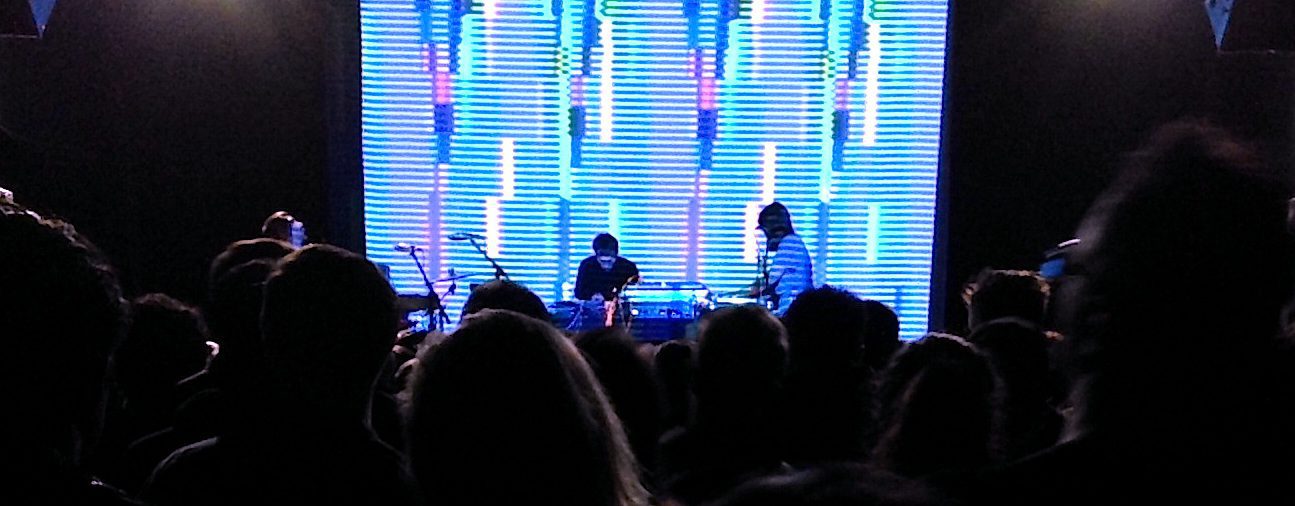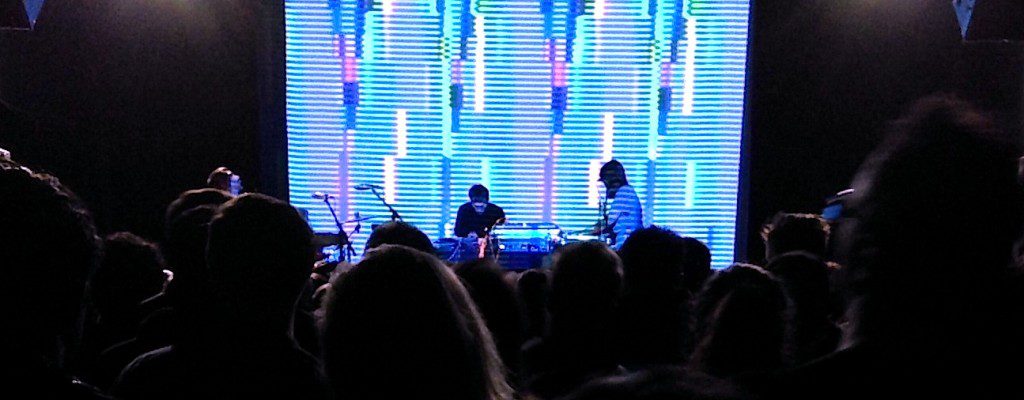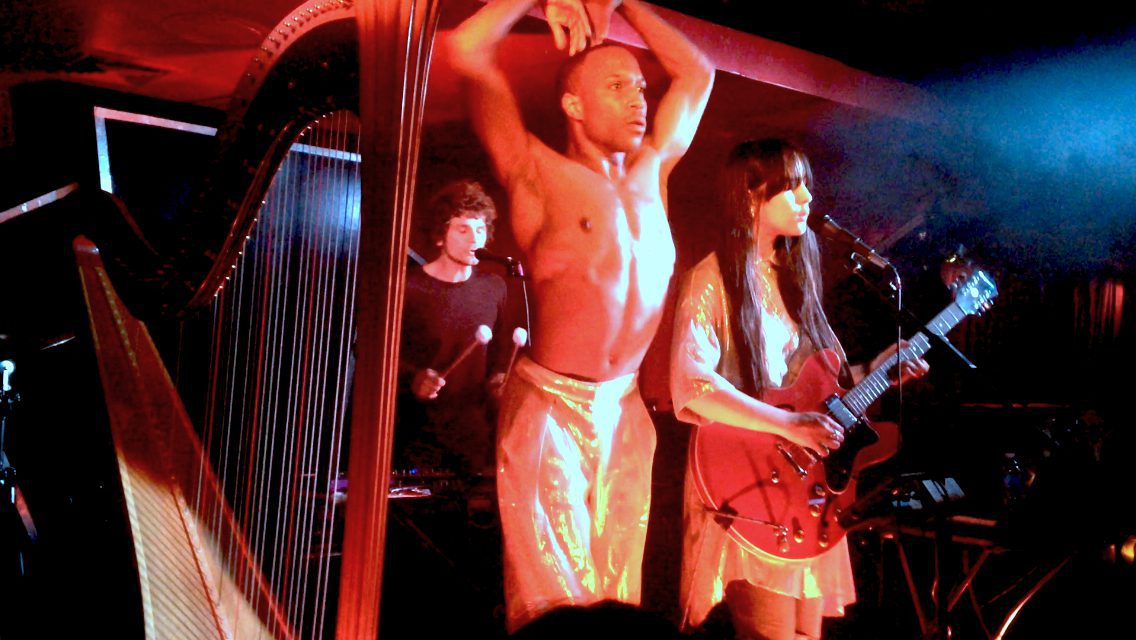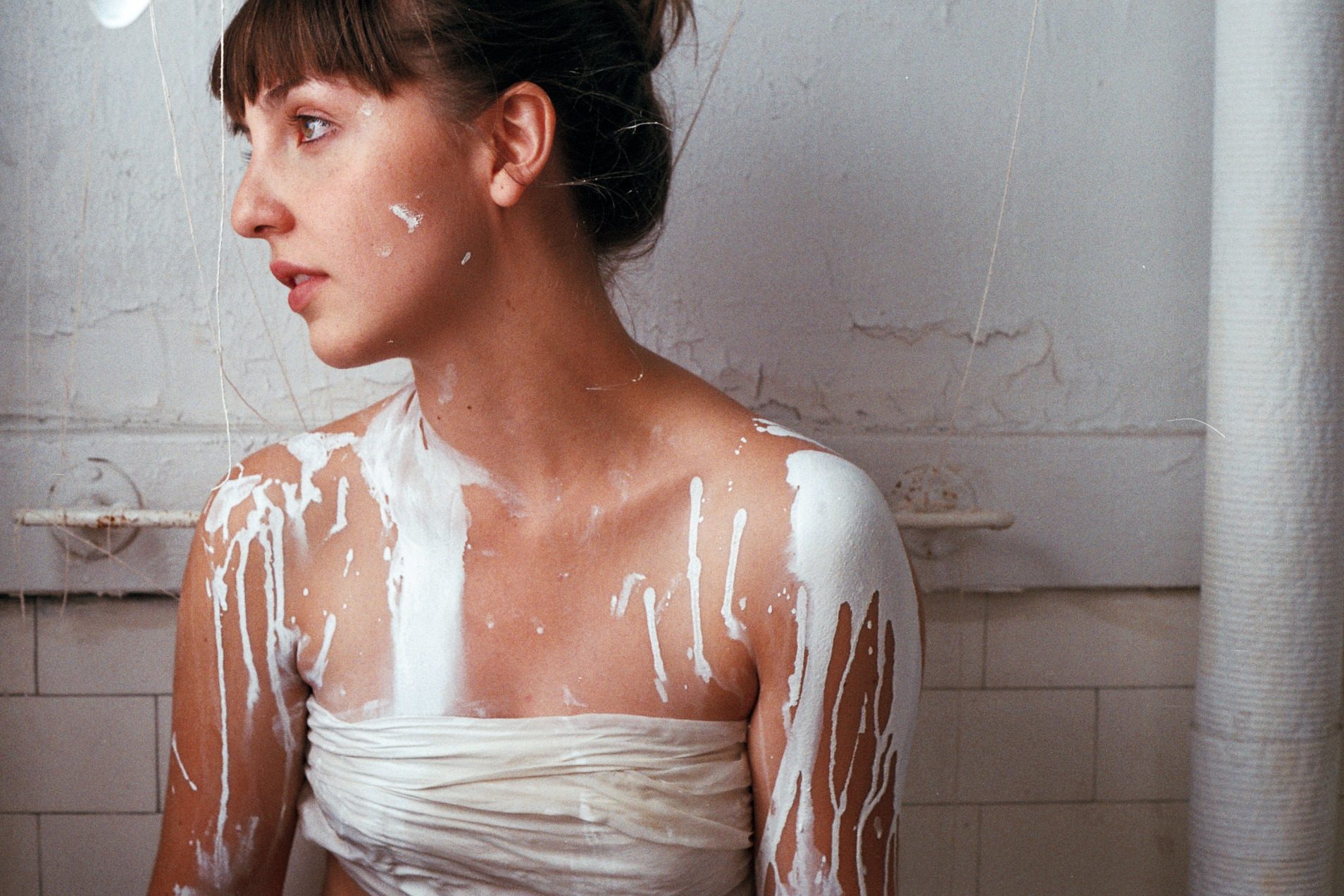
As electrifying as Factory Floor’s self-titled debut record was, there’s only one way to truly experience the post-industrial outfit’s particular brand of tachycardiac disco – to be utterly immersed in it. At Music Hall of Williamsburg last Wednesday, the British trio’s mesmeric visions became the crowd’s own, thanks to floor-to-ceiling pixel-patterned projections and pulsating rhythms. Standing by the soundboard with the base of my skull on the booth, I could feel each throbbing beat reverberate down my spine, in my brain. Like an elixir, Nikki Colk’s anodyne vocals drifted over the manicured drone, a syrupy echo bouncing off bright-light flashes. Like a synaesthetic, it was hard for me to tell which sense was what; the synth lines purple laser beams, the drum punches articulating somewhere on the roof of my mouth rather than in my ear canal.
With an all-enveloping blitz such as this, it didn’t need to be deafening. The sensory onslaught was amplified in its repetitions and the drama of drawing them out. As danceable as the band’s catalogue is, the crowd hardly moved, transfixed and moving as though submerged in thick liquids. And you get the sense that this is exactly how Factory Floor wants its audiences to feel. They’ve existed in some form or another for almost a decade, but their singles have trickled slowly from various boutique labels in just half that time, serving as a primer for what they’d later dish via DFA. This trajectory is also a clue as to how Factory Floor operates; each spin of lead single “Fall Back,” for instance, builds the dance club around its listener, no matter where the listener is. So imagine, then, hearing that happen with the band is right there on stage, constructing an almost tangible atmosphere in real time. There are very few acts of similar ilk who even attempt to do this, let alone succeed in it.
What sets Factory Floor apart is that you get the sense they’ve thought all of this through, that this is far more orchestrated than it is by accident. It’s as if founding members Gabriel Gurnsey and Mark Harris sat down and decided to make this project as expansive and hypnotic as it could be, as though they wanted to invent an experience yet unestablished in the club scene in London, or else replicate the essence of Europe’s most notorious dance parties. When Harris left and was replaced by Dominic Butler, it was a torch he was willing to carry; but the addition of Colk’s manipulated vocals and samples were the essential elements that galvanized their aesthetic and made their record so buzzworthy. If you haven’t basked in the live iteration of their stellar debut, though, you’re missing something; they’re a must-see act, whether you come to bask in the atmospherics or move along to their voracious velocity.





